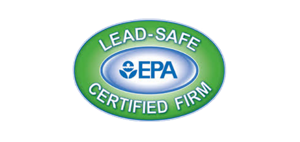Legally speaking, landlords are typically held accountable for maintaining and protecting both your living space and belongings; renters typically put down a security deposit to cover any potential damages that occur to either party’s properties.
Inspect the Area
Your landlord should have an emergency plan in place for water damage caused by plumbing, storms or any other means. As a tenant, it’s your responsibility to become familiar with this plan and how it might impact you and your belongings; read your lease agreement as this should explain how severe maintenance problems will be handled.
One way to prevent water damage in your apartment is to conduct a walk-through inspection with your landlord before moving in. Doing this may uncover issues which you can document for potential security deposit refunds or get fixed before moving day arrives.
Pre-inspections must cover every area of a rental unit, from appliances such as stoves and refrigerators to floors, walls and ceilings – paying particular attention to cracks or signs of moisture such as water marks on walls or floors that indicate flooding or leakage; additionally it’s wise to test out peepholes as well as check locks and latches to make sure everything is secure.
Be wary of any sudden health issues among your family, particularly respiratory ones, that could be the result of mold growth due to leakage or flooding. Also take note of any strange smells coming from bathrooms, kitchens or living spaces as these could indicate that sewage back up is occurring – if you detect these things contact a professional right away to minimize extensive and costly damage to both your apartment as well as belongings.
Determine Who is Accountable
If your home or rental property has experienced severe water damage, taking immediate action is vital to its restoration and recovery. Dry First Inc provides expert inspection services that will assess any property damages and ensure they are covered by insurance companies.
When identifying who is accountable for water damage in Florida, the first step should be identifying its cause. This may require inspecting the damage itself and reviewing your condo policy as well as speaking to an adjuster or public adjuster. It is also essential that communication between you and your HOA be maintained throughout this restoration process to ensure compliance with all community guidelines and regulations.
Tenants may be held liable for water damage depending on their lease agreement and state laws. Some landlords hold tenants liable if damage occurred as a result of neglectful water use by tenants, including burst pipes caused by setting winter temperatures too low or blockages caused by items flushed down toilets.
If a property becomes uninhabitable, landlords may be responsible for providing temporary accommodations to their tenants. Homeowner’s insurance may cover this cost; landlords should review their condo policy to understand which items are covered and which costs will have to be covered out-of-pocket; they should also communicate with tenants to determine who may bear some responsibility in this matter.
Shut Off the Water in Florida
Water damage is one of the most widespread and destructive issues that can afflict an apartment, from furniture destruction and appliance failure, destroying electronics and expensive equipment, to mold growth in their absence. That is why tenants must understand their landlord obligations and rights in case their apartment floods, as this will help ensure a successful outcome.
Floodwater damage can often be avoided through regular inspection and repairs of pipes and related systems, as well as by tenants checking their faucets, bathtubs and sinks for any signs of leakage and informing their landlord immediately should any issues arise. Landlords should require their tenants to perform periodic checks of these fixtures and to notify them as soon as any problems appear.
Tenants must also understand how to shut off their home’s water supply in case of an emergency, even though this may seem like a low priority. Being prepared with knowledge on this front can save lives in the event of disaster; new homes in Florida typically come equipped with shutoff valves near street level that tenants should know how to locate themselves or call upon a plumber when necessary to turn off.
Landlords should require that tenants keep a record of any water damage that occurs in their home and provide these documents to their insurance provider if filing a claim due to storm- or hurricane-related damage. This will enable insurers to assess if items damaged by weather events are covered, and ensure any associated costs for restoration of property are covered by those responsible.
![]()
Move Your Valuables
Burst pipes, leaky roofs, slow leaks from appliances and sinks that go undetected for months as well as toxic mold can all contribute to water damage in condos, leading to significant renovation costs quickly adding up as repairs and cleaning are needed. In addition, such leaks could potentially pose serious health hazards to its inhabitants.
As the landlord, one of your first priorities should be to secure all valuables exposed to floodwaters by moving them to an alternate room within your apartment or storage unit. Furthermore, taking pictures and creating a list of damaged items will enable you to provide proof to insurance providers.
Before meeting with an insurance representative to inspect the property, it is crucial that no cleaning or repairing efforts be attempted without first consulting them first. Otherwise, your claim could be denied or reduced significantly and any salvageable items discarded could lead to additional charges from them later.
Landlords may face several difficulties when faced with flooding in a rental property, so understanding who is liable for repairs can help them make an informed decision on their next steps. It is also essential to note that Florida law provides tenants with certain rights such as the warranty of habitability which guarantees them a rental free from serious hazards.
If your landlord refuses to make necessary repairs after a flood, you may want to consider moving out. Hiring the appropriate attorney may help negotiate with insurance companies for compensation that you deserve.
- Locate the leak. The first step is to locate the source of the leak. This may be difficult, as leaks can often be hidden behind walls or under floors. However, there are a few things you can do to help you find the leak.
- Look for signs of water damage, such as wet spots on the ceiling, walls, or floors.
- Listen for the sound of running water.
- Check for any loose or damaged pipes.
- Turn off the water supply. Once you have located the leak, you will need to turn off the water supply to the area. This will prevent the leak from getting worse and causing further damage.
- Repair the leak. Once the water supply has been turned off, you can begin to repair the leak. The specific steps involved in repairing a leak will vary depending on the cause of the leak. However, some common methods of repairing leaks include:
- Using a pipe repair kit. These kits typically contain epoxy resin and a hardener that can be used to seal small leaks.
- Replacing a damaged pipe. If the leak is caused by a damaged pipe, you will need to replace the pipe. This may require the services of a plumber.
- Installing a new faucet. If the leak is coming from a faucet, you may need to install a new faucet.
- Clean up the area. Once the leak has been repaired, you will need to clean up the area. This includes removing any water that has leaked and drying the area. You may also want to use a dehumidifier to help remove any moisture from the air.
- Prevent future leaks. Once the leak has been repaired, you can take steps to prevent future leaks. This includes:
- Inspecting your pipes regularly for signs of damage.
- Replacing old or damaged pipes.
- Installing leak detectors.
- Keeping your home well-maintained.
Contact Your Landlord in Brevard County, Florida
First and foremost, notify your landlord immediately of the water damage to prevent further complications and mold growth. Depending on its severity, removal of furniture, personal items and walls may be required in order to access and treat the area effectively; depending on whether or not there is rental insurance in effect this could potentially cover repairs as well.
Landlords and tenants must understand their individual responsibilities to avoid disputes about water damage. A property owner should incorporate language into their lease agreement that clearly establishes who is liable for what, as well as how disputes will be settled between parties involved. Doing this will prevent issues down the road while making life simpler for all involved.
Typically speaking, landlords are accountable for maintaining the structure and plumbing issues in rental homes and apartments they own or manage; tenants on the other hand are accountable for their own belongings and belongings lost due to flooding in a building they rent from; in such an instance you should be eligible to seek compensation either through renters’ insurance coverage or from the property owner’s insurer.
As a renter, you can take steps to lower the risk of water damage by inspecting your rental unit on a regular basis and noting any areas which aren’t as clean or functional as they should be. Furthermore, make sure your landlord performs a walk-through prior to moving in so any issues can be quickly addressed by them.
Florida law permits tenants to withhold rent payments until significant problems with their landlord have been addressed in a timely fashion. If this applies to you, written notification should be provided 12 days before the next rental payment due date.






